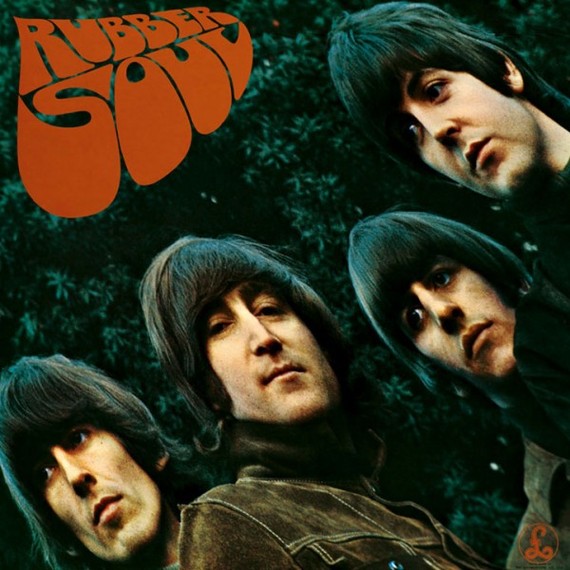Recalling the first time she heard the Beatles' Rubber Soul, at age ten, a female fan said, "Just when you thought you knew them and had a sense of them, it would be something new." But the leap from Help! to Rubber Soul seemed quantum in every way. Their look and sound had an unexpected level of sophistication, and the lyrics spoke of man-meets-woman rather than boy-meets-girl. Many of these changes were foreshadowed in Help!, but Rubber Soul brought them into full flower. Even the youngest fans were engrossed. A female fan, age nine at the time, recalls, "My perception of them was changing; I was changing too, realizing the complexity of people, and that the Beatles weren't always happy-go-lucky. It was strange, but you listened."
The Beatles had been consistently bringing fans enormous pleasure for close to two years, with many saying, "they opened my ears to music." Fans counted on the Beatles to continue providing them with engaging musical experiences, and so when confronted with challenging lyrics, even the youngest listeners were happy to do "the work" because "it was the Beatles and we accepted it." One female fan, age nine at the time, recalled, "I didn't fully grasp it, but anything they did was ok with me."
The Beatles' lyrics continued to reveal, to both male and female listeners, how intelligent, sensitive men think about women, but the relationships, characters, and situations were becoming more complicated. These songs coaxed listeners out of their comfort zones and deepened their emotional and intellectual engagement with the Beatles. They also gave fans of all ages more to talk about:
"Their lyrics seemed more about their personal experience. We used to talk about the songs, wondering what they were saying." Female, b. '45
"I stared at the album cover, absorbed in the music, not thinking about anything else. I tried to figure out what the songs were about. My brother played it over and over and over. I never got tired of it. It wasn't like that with other artists." Female, b. '54
The "close listening" that began with Rubber Soul created a sense that the Beatles were communicating important ideas. Fans were used to hearing the Beatles sing about love, but "The Word" was a love song of a different kind. A year and a half before the "Summer of Love" and their 1967 anthem "All You Need Is Love," the Beatles were advocating love as a universal principle, and, quite explicitly, positioning themselves as the spiritual leaders of the emerging youth movement and counterculture, announcing they are "here to show everybody the light." On behalf of the Beatles, John invites fans to "say the word" and "be like me."
Love as a universal principle is part of the Judeo-Christian heritage-- there's nothing subversive or countercultural about it. In fact, some fans thought the song was about Christianity. Fans heard and considered this familiar message, now proffered by their beloved Beatles who were, as one fan age ten at the time put it, "starting to illuminate every part of our life."
Fans recall listening to "In My Life," and finding it "very sad" and "contemplative." Unlike some songs on the album, it was easy for young listeners to understand but sounded "grown-up" nonetheless. A female fan, age eleven at the time, vividly recalls "sitting in a rocking chair in the living room, looking at the album cover, and thinking about the words to 'In My Life.'"
More than just a "favorite group," fans were, increasingly, finding great personal value in what the Beatles had to say, and discovering great beauty in how they said it. Still, younger listeners knew they were "a few years behind really understanding and appreciating what the Beatles did."
With Rubber Soul, the Beatles came to occupy a role in fans' lives and a place in their psyches that was different from any previous fan-performer relationship. Years later, Lennon said the Beatles were merely "in the crow's nest" looking ahead at what was coming. But when writing "The Word"--on a multicolored lyric sheet and high on pot--they seem to have had a moment of megalomania that wasn't all that delusional. Fans of all ages "looked up to them and wanted to be just as cool. They were, as one said, "the embodiment of cool."
Rubber Soul was a lot to absorb, and some listeners "were not there yet." A male fan, sixteen at the time, remembers playing the album for friends who didn't like it, preferring the relative simplicity of earlier songs: "They were looking for 'Eight Days a Week.'" Another fan, a child of eight at the time, remembers keeping the album "at arm's length" because she didn't understand it. That said, the album went to number one in January '66 and held that position for six weeks. With its warm brown cover, acoustic, folky sound, intriguing lyrics, and intimate vocals, the American Rubber Soul is often mentioned as fans' favorite album.
Rubber Soul was also a hit with the press. Less than two years after summarily dismissing the Beatles, Newsweek called them the "Bards of Pop" and praised the album, saying the Beatles' "blend of gospel, country, baroque counterpoint and even French popular ballads" created "a style that was wholly their own," with songs "as brilliantly original as any written today."

